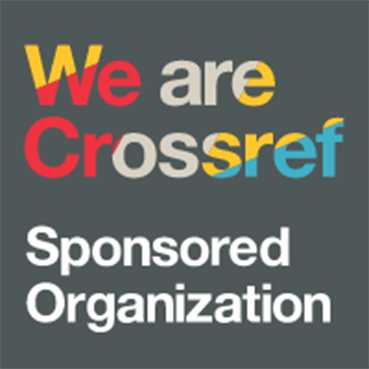Budaya Pesantren: Pengembangan Pembelajaran Turats
DOI:
https://doi.org/10.47766/almabhats.v7i1.911Keywords:
Islamic Boarding School, Learning Effectiveness, Pesantren Culture, Turats TraditionAbstract
Abstract: Mastering Turat book is one of the competencies of pesantren graduates. However, modernization poses hurdles to pesantren administrators who wish to preserve the tradition of studying Turat literature. Therefore, a custom is required to demonstrate the significance of studying the Turat book. This study aims to investigate, analyze, and provide a model for developing pesantren customs in the context of preserving the Turat legacy. This qualitative study employs a survey and descriptive analysis. The results of the study find that the model for developing the custom of learning the Turat book is implemented in three stages. The first stage is the value reinforcement of using the halaqoh learning paradigm. Secondly, the contribution to the structure and community of the book of Turat learners should be formed. Thirdly, the learners should actively participate in the Turat book contest. Additionally, the modernization of learning activities should take the form of methods and digital libraries.
Abstrak: Kompetensi lulusan pesantren salah satunya adalah menguasai kitab turats. Arus modernisasi melahirkan tantangan bagi pengelola pesantren untuk menjaga tradisi pembelajaran kitab turats. Untuk itu diperlukan sebuah budaya sebagai manifestasi nilai pembelajaran kitab turats. Penelitian ini berupaya mengeksplorasi, menganalisis dan menemukan model penciptaan budaya pesantren dalam menjaga tradisi kutubut turats. Penelitian berjenis kualitatif survey deskriptif. Hasil penelitian menunjukkan model penciptaan budaya pembelajaran kitab turats dilakukan melalui serangkaian tahapan. Pertama memperkuat nilai melalui model pembelajaran halaqoh. Kedua membentuk struktur dan komunitas kitab turats. Ketiga aktif mengikuti perlombaan kitab turats. Adapun modernisasi pembelajaran mengarah kepada metode dan perpustakaan digital.
References
Abdurrahman, W., & Wahid, K. H. A. (2001). Menggerakkan Tradisi Esai-Esai Pesantren. LKiS.
Ahdar, Abdul Halik, & Musyarif. (2020). Moderation and Mainstream of Pesantren or Madrasah Education. KURIOSITAS: Media Komunikasi Sosial Dan Keagamaan, 13(1), 14–37. https://doi.org/10.35905/kur.v13i1.1369
Amir, S. (2020). Problematika Pembelajaran Kitab Kuning di Pesantren Putra Alkhairaat Pusat Palu. Al-Qalam, 26(1), 141. https://doi.org/10.31969/alq.v26i1.827
Anwar, M. I. (2013). Administrasi Pendidikan dan Manajemen Biaya Pendidikan. Raja Grafindo Persada.
Asari, H., & Abidin, Z. (2020). Kitab Kuning And Training Of ‘Ulamâ’: The Experience of Madrasah Al Qismul Ali Jalan Ismailiyah Medan. MIQOT: Jurnal Ilmu-Ilmu Keislaman, 44(1), 93. https://doi.org/10.30821/miqot.v44i1.750
Azra, H. (2018). Islamic Education in Indonesia (pp. 763–780). Springer. https://doi.org/10.1007/978-3-319-64683-1_32
Bashori. (2017). Modernisasi Lembaga Pendidikan Pesantren Perspektif Azyumardi Azra. Nadwa, 11(2), 269. https://doi.org/10.21580/nw.2017.11.2.1881
Dhofier, Z. (1984). Tradisi Pesantren: Studi tentang Pandangan Hidup Kyai. LP3ES.
Dhofier, Z. (1990). Traditional Islamic Education in the Malay Archipelago: Its Contribution to the Integration of the Malay World. Indonesia Circle. School of Oriental & African Studies. Newsletter, 19(53), 19–34. https://doi.org/10.1080/03062849008729746
Hasan, N. (2009). The Salafi Madrasas of Indonesia. In The Madrasa in Asia (pp. 247–274). Amsterdam University Press. https://doi.org/10.1515/9789048501380-011
Huda, A. N. (2018). Pendidikan Inklusif dari Pesantren. Idrak: Journal of Islamic Education, 1(1).
Kesuma, G. C. (2014). Pesantren dan Kepemimpinan Kyai. TERAMPIL: Jurnal Pendidikan Dan Pembelajaran Dasar, 1(1), 99–117.
Ma’arif, S. (2015). Pesantren Inklusif Berbasis Kearifan Lokal. Kaukaba Dipantara.
Mahardika, A. (2018). Upaya Meningkatkan Kemampuan Membaca Kitab Kuning Melalui Metode Tamyiz. Universitas Muhammadiyah Jember.
Mahmud, A. (2019). Principle of Madrasah Head Management in Realizing Effective Madrasah. International Conference of Moslem Society, 3, 218–228. https://doi.org/10.24090/icms.2019.2431
Marzuki, M. (2011). Sejarah dan Perubahan Pesantren di Aceh. Millah, 11(1), 221–233. https://doi.org/10.20885/millah.vol11.iss1.art11
Mastuhu. (1994). Dinamika Sistem Pendidikan Pesantren : Suatu Kajian Tentang Unsur dan Nilai Sistem Pendidikan Pesantren. INIS.
Munifah, M., & Purwaningrum, S. (2022). Leadership Strategy: Developing School Culture through Digital Turats Learning. Cypriot Journal of Educational Sciences, 17(1), 68–80. https://doi.org/10.18844/cjes.v17i1.6682
Munir, M. (2020). The Continuity and the Culture Change of Pesantren in South Sumatra. Ta’dib: Journal of Islamic Education, 21(1), 87–100.
Nurhayati, A. (2016). Literatur Keislaman Dalam Konteks Pesantren. Pustakaloka, 5(1), 106–124. https://doi.org/10.21154/pustakaloka.v5i1.488
Prasetyo, M. A. M., Salabi, A. S., & Muadin, A. (2021). Mengelola Efektivitas Organisasi Pesantren: Model Kesesuaian Budaya Organisasi. FENOMENA, 13(1), 41–62. https://doi.org/10.21093/fj.v13i01.3245
Prasetyo, M. A. M., & Zulkhairi, Z. (2022). Design of Aceh Government’s Dayah (Study of Conflict Interaction and Effectiveness in Organizations). Al-Hayat: Journal of Islamic Education, 6(1), 87–103. https://doi.org/10.35723/ajie.v6i1.220
Qomar, M. (2007). Manajemen Pendidikan Islam, Strategi Baru Pengelolaan Lembaga Pendidikan Islam (1st ed.). Erlangga.
R’boul, H. (2021). Alternative Theorizing of Multicultural Education: an Islamic Perspective on Interculturality and Social Justice. Journal for Multicultural Education, 15(2), 213–224. https://doi.org/10.1108/JME-07-2020-0073
Rasyidin, R. (2021). The Social Political Role of Muslim Scholars (Ulamas) in the Acehnese Society. Journal of Global Responsibility, 12(1), 1–21. https://doi.org/10.1108/JGR-10-2018-0040
Salabi, A. S., & Prasetyo, M. A. M. (2022). Studi Tentang Pelembagaan Substansi Budaya Organisasi Dalam Konsep Learning Organization. Reflektika, 17(1), 63–94. https://doi.org/10.28944/reflektika.v17i1.573
Siregar, I. (2016). Indonesian Islamic Institutions between the Foundation and Endowment Laws: a Critical Legal Analysis. SpringerPlus, 5(1), 1213. https://doi.org/10.1186/s40064-016-2772-6
Siswanto, S. (2016). Desain Mutu Pendidikan Pesantren. KARSA: Jurnal Sosial Dan Budaya Keislaman, 23(2), 259. https://doi.org/10.19105/karsa.v23i2.726
Solahudin, D. (2008). The Leader, the Followers, and the Pattern of Relationships. In The Workshop for Morality (pp. 41–60). ANU Press. http://www.jstor.org/stable/j.ctt24hd6m.9
Sudarman, S., & Hidayaturrahman, M. (2020). Relation of Religion, Economy and Politics: Islamization of Malay Community through Trade and Kingdom. Al-Tahrir: Jurnal Pemikiran Islam, 20(2), 175–194. https://doi.org/10.21154/altahrir.v20i2.2007
Sulthon, M., & Khusnuridlo. (2006). Manajemen Pondok Pesantren dalam Perspektif Global (1st ed.). Laksbang PressIndo.
Untung, M. S. (2011). Rekonstruksi Manajemen Pendidikan Pesantren. Edukasia Islamika, 9(2), 69501.
Wati, S., & Suriani, S. (2019). Pesantren: The Origins And Institutional Growth.
Downloads
Published
How to Cite
Issue
Section
License
Copyright (c) 2022 Al Mabhats : Jurnal Penelitian Sosial Agama

This work is licensed under a Creative Commons Attribution-ShareAlike 4.0 International License.






